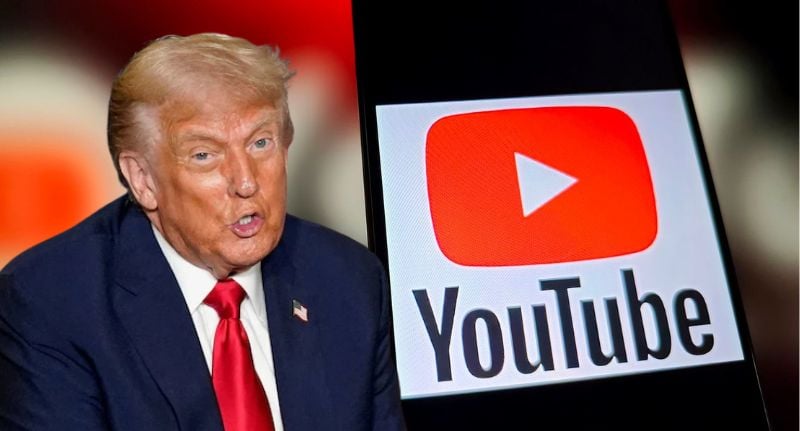YouTube has agreed to pay US President Donald Trump $US22 million (A$33.46 million) as part of a $24.5 million settlement with multiple plaintiffs banned from the platform following the January 6 riots at the Capitol.
Court documents filed in California confirm the majority of the settlement will go to Trump, with $US2.5 million distributed among other plaintiffs, including the American Conservative Union.
Where the money is going
Trump’s $US22 million will be directed to the Trust for the National Mall. CNN reported that the contribution will support the construction of the White House State Ballroom.
The remaining $US2.5 million will be allocated to other groups that joined the case, with the American Conservative Union among the beneficiaries.
Part of a wider wave of settlements
The agreement marks another in a series of settlements reached with platforms that banned Trump in 2021.
In January, Meta paid $US25 million to settle a similar lawsuit. X followed in February, agreeing to pay around $US10 million.
The filing makes clear the settlement is not an admission of liability. Google, YouTube’s parent company, confirmed the deal but declined to comment further.
Timing and context
The settlement was disclosed just a week before a scheduled October 6 court hearing.
It comes as YouTube has reinstated a number of previously banned creators who had promoted COVID-19 misinformation and false election content. In a letter to the Republican chair of the House Judiciary Committee, the company wrote:
“YouTube values conservative voices on its platform and recognises that these creators have extensive reach and play an important role in civic discourse.”
Trump himself returned to YouTube in 2023 ahead of his second-term election campaign. He had been originally banned for violating policies against inciting violence after the Capitol riot as Congress moved to certify Joe Biden’s 2020 election win.
The broader industry lens
For platforms, the settlements with Trump illustrate both the legal and reputational complexities of content moderation at scale.
What started as emergency bans in the wake of the Capitol riot has now turned into multi-million dollar payouts, with companies keen to resolve long-running disputes without admitting fault.
The timing also matters for advertisers and publishers: as platforms recalibrate their enforcement policies, they’re under pressure to demonstrate consistency while managing political scrutiny.
